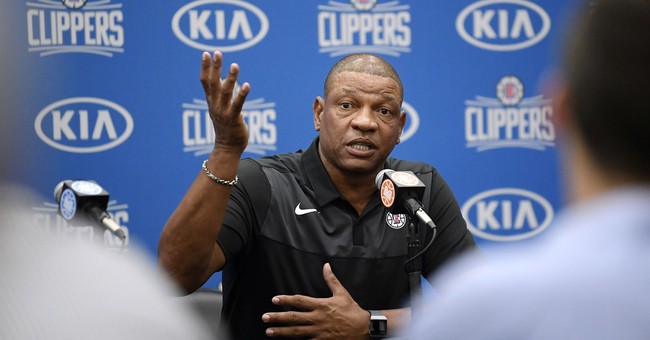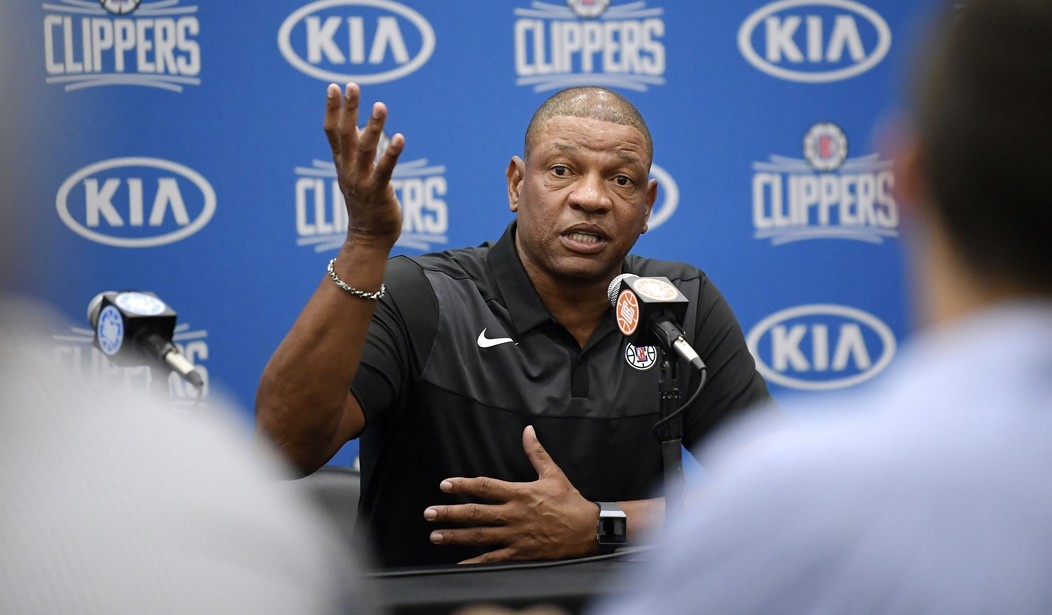
It was such a simple comment, said by a large, grown-ass man who is worth millions of dollars. It was said from a platform of status and accomplishments, noted by a person with a college education from a private university, an education from some of America’s toughest streets, and life experiences that span the globe.
As such, some will note the comment’s simplicity, while others will claim it was uttered by an ungrateful simpleton.
“It’s amazing why we (African-Americans) keep loving this country, and this country does not love us back. It’s really so sad. Like, I should just be a coach. I’m so often reminded of my color. It’s just really sad. We got to do better. But we got to demand better.”
And, in that statement, it is clear: once coronavirus just disappears and once the economy bounces back, there will still be an illness that impacts all of us – with or without masks – that has the potential to kill America.
For all of the thoughts on whether professional athletes should use their professional platforms to address social issues in our nation, the sentiment expressed by Glenn “Doc” Rivers before the NBA boycott of playoff games and select Major League Baseball games on Wednesday highlights a disturbing point: that we as Americans must address the divide in our nation successfully in order to resurrect the best of America throughout each corner of the nation.
In this regard, it really does not matter who wins the presidency. If the President of the United States fails at the mission of reuniting our nation efficiently, tactfully, and respectfully starting on January 20, 2021, our nation not only risks losing its status as the shining city on the hill rhetorically, but through our domestic disjointedness and international inconsistencies with our allies and “frenemies”, we will lose our status as revered global leader as well.
Domestically, is it any wonder that more Americans – notably our young – continue to gravitate towards embracing socialism? If there is a deep-seated belief that this nation and its purported values and systems (e.g., free-market principles economically, “liberty and justice for all” that has been subjectively applied historically) are not available to them despite legal citizenship, why would they extend the effort to defend, uplift, and rebuild a better America through each challenge we face in 2020? For African-Americans such as Coach Rivers, why would any Black person aside from “magical Negroes” living through the widening of wage gaps, continued police controversies, worsening education systems, and huge healthcare disparities through the worst of times trust that America and her values are truly for them – especially with mounting evidence to the contrary and political “bastions of hope” discarding most of them as monolithic political pawns living on a “mental plantation”?
Internationally, is it any wonder why China is gaining on America on everything from securing keystone status in historic trade deals to obtaining more of the global economic share as the second-largest economy with much room to grow? Or that Russia continues to expand its influence in Eastern Europe in an Iron Curtain redux during a time when the United Nations has been often rebuked and NATO’s relevancy in the 21st century has been questioned in recent times? If our commitments to freedom across the globe, where friend and foe know exactly where we stand on those God-given rights that our Constitution defends and our flag symbolizing, are repeatedly questioned or weakened, why would the average American youth not question things as well? Why would Americans that have lived on the fringes of fully-enjoyed citizenship for generations not wonder if King’s “promised land” actually exists in America?
The questions are not necessarily one of accusatory “Donald Trump hates Black people” moments akin to Kanye’s second-most-infamous ad lib moment. The healing needed is deeper and more meaningful.
When African-Americans question their children’s safety today and hopes for future regardless of the urban bastions they live in or the rural areas they reside, it is evident that, regardless of regular voting patterns, the political parties of the elected officials that serve them, or the geographic regions that they reside in, there is a fundamental breakdown inhibiting the full enjoyment of citizenship that supersedes politics. When White Americans question the appreciation and patriotism of Black Americans despite mountains of evidence found in the military service of slaves and Jim Crow’ed Americans, the cultural contributions of Olympic athletes and world-renowned artists, and the civic leadership of elected officials and award-winning civic rights leaders alike – and when the retort is often taking the “shut up and dribble” approach to their expressed concerns – there is a fundamental breakdown of how we collectively define “Americanism”, how we envision “what is an American”, and how we expect to work through our challenges within a democratic republic where justice is demanded to be the standard, not the whims of a majority that temporarily rules.
Any victor in this fall’s elections at any level of politics must be particularly skilled at addressing the growing discontent and hopelessness found in the souls of too many Americans in 2020. It is an erosion that is leading to broken hearts, dashed dreams, and a blurred vision for a better future. One will never be able to lead our nation back to a stronger economy, a deeper resiliency, a richer educational yield, and expanded American prosperity across our diversity without understanding, embracing, and correcting the dynamic that has too many Americans thinking, speaking, and acting in silos. A divided states of America is a defeated USA. Being American is a sentiment – one that drives us to become the best of ourselves daily despite our individual and national flaws for the improvement of our communities. It is a feeling as well as a vision and value – ones that are impossible to optimize if too many Americans feel as though that nation has never – and may never – love them back.














Join the conversation as a VIP Member